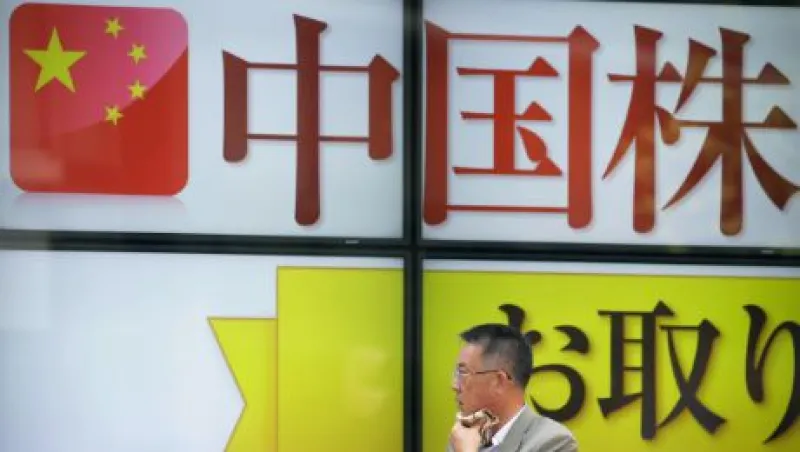Sobering numbers came out of China over the weekend. National Bureau of Statistics trade data revealed sharply weaker import and export levels with inbound shipments registering an 8.1 percent year-over-year decline and deliveries abroad plunging by 8.3 percent versus July 2014. Producer price index levels came in at a 5.4 percent contraction versus the same month last year while, at an annual rate of 1.6 percent, consumer price bested consensus forecasts but levels remain well below targets set by the People’s Bank of China. The rise in prices at the cash register were driven almost entirely by food costs, a politically sensitive segment that is the one place policymakers do not want inflation. At a time when China is attempting to shift away from export dependency and investment to an economy dominated by internal consumption, signals of weakening demand at home are unwelcome. Regardless of potential weakness in underlying fundamentals, today the Shanghai Composite index gained nearly 4 percent in intraday trading, as massive government buying and restrictions on sales appear to be finally providing the bounce Beijing has been looking for.
It’s mega-merger Monday. Warren Buffett-controlled Berkshire Hathaway announced that it is acquiring Precision Castparts in a deal valued in excess of $32 billion, including debt. Portland–headquartered Precisions, a manufacturer of components for the aircraft and energy industries, represents the single largest acquisition in Berkshire’s history. Separately, another major merger was announced this morning: ammonia manufacturer CVR Partners announced a deal on Monday for Rentech Nitrogen at a 33 percent premium to the fertilizer producer’s closing price on Friday.
Greek negotiations continue. Greek Prime Minister Alexis Tsipras continues to express confidence that the next tranche of aid from creditors will be finalized within the week, but questions remain as to how much European Union partners are willing to extend in an initial lump sum. The International Monetary Fund and many EU leaders favor a package that includes a near-term injection of €30 billion ($33 billion) while some conservative lawmakers in Germany favor a smaller amount up front with future incremental payments tied to specific reforms.
Oil prices remain under pressure. Despite weaker prices, data released by Houston–based drilling company Baker Hughes last week saw the U.S. rig count increase for the third consecutive week climbing by 6 to 670 total in production. Meanwhile, several smaller member nations of the Organization of the Petroleum-Exporting Countries have publicly called on the organization to hold an emergency meeting before the scheduled December summit as low prices weigh on public finances. Prices for front-month delivery of West Texas Intermediate crude futures have declined by 25 percent versus the year-to-date high in June.
Alibaba announces investment. Chinese e-commerce giant Alibaba today announced a $4.6 billion investment into Suning Commerce Group, a struggling Chinese bricks-and-mortar electronics retailer. As part of the deal Suning will begin marketing products on the Alibaba Tmall.com online platform.
Portfolio Perspective: Dislocation, Displacement and Dispersion — Kenneth Chan, Jefferies
Investors are being assaulted by a series of interrelated macro and financial factors. Despite the fact that commodity prices have been falling for over a year alongside a strengthening U.S. dollar, earnings revisions continue to deteriorate.
While the equity markets continue to focus on the Fed rate hike lift-off, the dislocation from a strong dollar, in our view at Jefferies, rising long rates and falling oil prices is still being factored into share prices. The displacement in U.S. share price technicals, fund flows and credit conditions makes the reading between real economic activity and indexes even harder.
While market breadth continues to deteriorate, forward expectations of sector correlation are widening yet again. A strong dollar allows investors the luxury of holding cash. Consequently, equity volumes have been lackluster. High U.S. real bond yields is making the competition much harder for equity markets.
We continue to point out that as sector correlations continue to expand, the divergence between equity and bond volatility continues to drift further. It should be highlighted that corporate credit spreads have extended, suggesting that equity valuations are becoming important.
Kenneth Chan is a quantitative strategist with Jefferies in Hong Kong.






